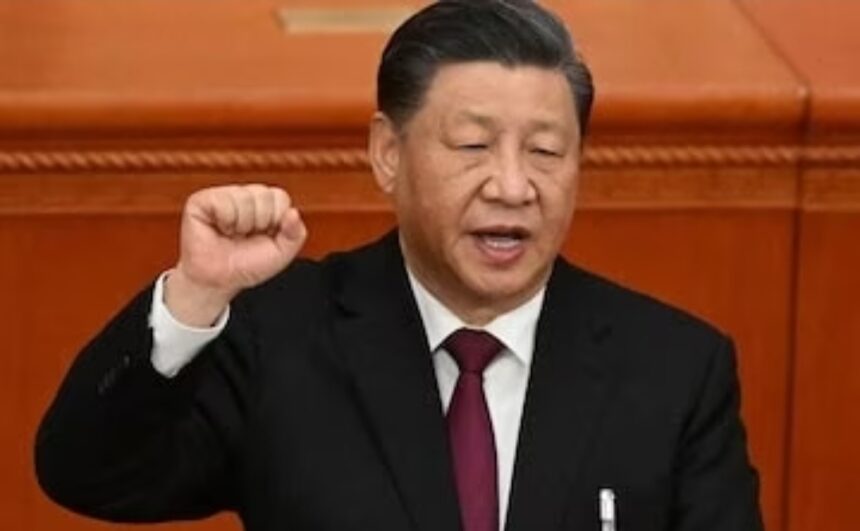China is set to release its final big data dump for 2023, capping a difficult year after emerging from Covid Zero and drawing attention to its ability to maintain growth momentum this year.
China is set to release its final big data dump for 2023, capping a difficult year after emerging from Covid Zero and drawing attention to its ability to maintain growth momentum this year.
Figures for gross domestic product, industrial production and retail sales are expected to improve year-on-year in 2022, thanks to a weak comparative base as pandemic restrictions hinder economic activity. According to economists surveyed by Bloomberg, GDP likely grew 5.2% for all of last year, in line with the government’s target of about 5%.
Beijing is predicted to reset its growth target at around 5% this year, although that will be much more ambitious due to the higher base. According to a Bloomberg survey, without stronger stimulus measures, economists predict growth will slow to 4.5%.
Here’s what to expect when the statistics office releases the data on Wednesday:
Data Guide
The start of 2024 brings negative news for the economy, as recent data shows continued declines in consumer prices, stagnant import growth and slowing lending rates – all of which suggest Weak domestic demand will again be one of the country’s economic challenges. in 2024.
In the final quarter of 2023, consensus forecasts GDP growth to accelerate to 5.3%. They said Bloomberg Economics’ current broadcast model estimates the rate could be slightly higher at 5.4%, although the margin of error the day before the NBS was released was about 0.4 points percent, they said.
However, compared with the previous quarter, China’s growth may have actually slowed. Outlook 2024
Real estate, which once accounted for a fifth of China’s economy along with related sectors, remains the biggest threat to growth prospects in 2024.
Wang Tao, head of research Asia Economics Director at UBS Group AG, said during an event: “If the real estate market cannot stabilize and its decline becomes more severe, then the real estate price correction could worsen, dealing another blow to household confidence.” last week. .
She said it’s unclear when housing starts, an indicator of developer confidence, will recover. He added that housing supply will remain abundant as previously unfinished projects have been completed and many property owners may want to sell, reducing demand for new housing among households. family.
Infrastructure spending, supported by the government, will have to increase to counter the downturn in the real estate market. Economists at Citigroup Inc. Expect infrastructure investment growth to increase to about 8.5% this year, from an estimated 5.8% in 2023.
Consumption is likely to recover only marginally due to the lack of strong government incentives such as direct subsidies to households, an unstable labor market and falling real estate prices. Deflationary pressures are likely to continue due to weak confidence, even if pork and energy prices are able to recover.
Exports could stabilize in 2024 after recording the first annual decline since 2016. This will be supported by a recovery in global semiconductor demand, but trade tensions are likely to increase with major partners for products such as electric vehicles.
More support
Macquarie Group economists, including Larry Hu, wrote in a note in early January that policymakers must take “decisive” action to turn around the real estate sector. One option, they said, would be to create a “lender/buyer of last resort” to bail out developers, similar to what the United States did during the global financial crisis.
Yao Wei, chief Asia-Pacific economist at Societe Generale SA, predicts that the People’s Bank of China will provide an additional 650 billion yuan ($91 billion) in low-cost funds this year under additional loans are promised to finance social housing projects.
Economists are calling for stronger fiscal policy to support growth. Authorities have stepped up fiscal stimulus measures by mobilizing the central government, creating breathing space for debt-ridden local governments. It’s a strategy that economists say will continue until 2024, as the government seeks to restore confidence.
The PBOC should also maintain enough liquidity to help banks buy government bonds. A senior official suggested the central bank could reduce the amount of cash banks must hold in reserve, known as the required reserve ratio or RRR.
The People’s Bank of China maintained interest rates on one-year policy loans on Monday, disappointing investors who expected the first cut since August. However, there may be more room to cut interest rates if the US Federal Reserve starts cutting interest rates this year, as that would ease downward pressure on the yuan.
Keeping interest rates on hold means “the chances of an RRR cut in February are higher,” said Xing Zhaopeng, senior China strategist at Australia & New Zealand Banking Group Ltd.
For more information, visit at https://happenrecently.com/zepto/?amp=1



